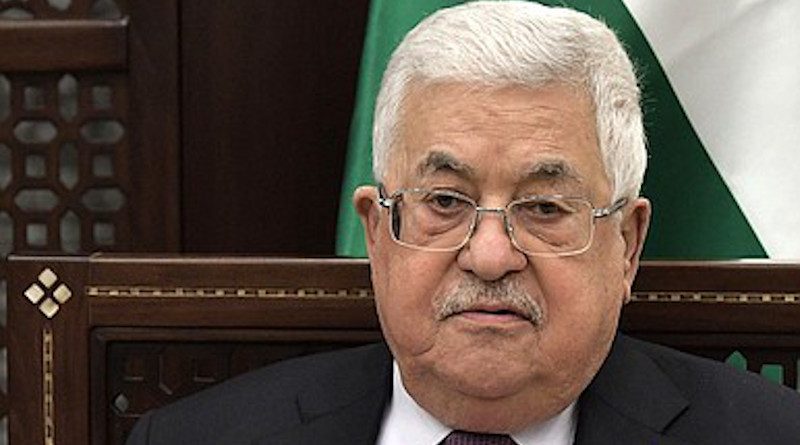It’s Easy To Criticize Abbas For Palestinian Failures But True Blame Lies With Extremists – OpEd
By Ray Hanania
Since the death of Yasser Arafat and the collapse of the peace process, many Palestinian activists and groups have blamed his successor, Mahmoud Abbas, for Palestinian failures.
Abbas is the “president” of Palestine, a title that symbolized something during the former peace process but now, under the brutal Israeli occupation, is essentially an empty title.
Yet Abbas has done as much as he could in the face of mounting criticism from Palestinian extremists and those who have spent their lives opposing any peace deal with Israel based on compromise. These extremist critics of Abbas have never really supported the peace process or a compromise agreement. They aggressively opposed the 1993 Oslo Peace Accords and yet, ironically, in the same breath were quick to denounce Israel for rejecting peace based on compromise.
If anyone is to blame for the suffering of the Palestinians, besides Israel, it is not Abbas — who has struggled to rally support among European nations in an attempt to put pressure on the Israelis in the pursuit of peace — it is extremists such as Hamas and others groups, including the Popular Front for the Liberation of Palestine, and Islamic Jihad.
If Palestinian extremists have one thing in common with the Israeli authorities, it is their opposition to a peace based on compromise. They both want it all.
But it is easier for the Palestinians to focus their criticism on Abbas; he is now in his 80s and has been weakened by the deterioration of the Oslo agreements, driven by opposition from Israeli Prime Minister Benjamin Netanyahu and his predecessors, including the terrorist Ariel Sharon.
The Palestinian extremists know that they have a better chance of succeeding in undermining Abbas, thus achieving a Pyrrhic victory fighting against fellow Palestinians who support peace, than in standing up to the Israelis who oppose peace. These extremists rely on the battered emotions of the Palestinian people who live in Israel, Gaza, under occupation in the West Bank, and in the diaspora, where the extremism is even greater.
The worse the situation becomes for the Palestinians, the greater the emotional suffering — and the greater the emotional suffering, the stronger the extremists become. They do not have to actually achieve anything; all they have to do is speak out in opposition to any form of peace based on compromise and denounce those who support the two-state solution as “sell-outs,” “Uncle Toms” or “quislings.”
This kind of name-calling directed against their own kind is the most potent weapon the extremists have in their arsenal of hate. They are ineffective at everything else. Their many acts of violence — from suicide bombings intended to derail the peace process in the 1990s to the killings of Israeli civilians in various attacks — have never come close to achieving freedom. However it reinforces the anger, which reinforces the opposition to compromise with Israel.
Abbas has protested against the peace gestures initiated by the Trump administration, including the Peace to Prosperity economic plans unveiled in Bahrain in June 2019 and the “Deal of the Century” presented at the White House in January this year. If Abbas has a fault, it was to surrender to the extremists by refusing to participate in discussions about these with Washington.
During Trump’s time in office it has been easy for the extremists to align themselves with Abbas, who rejected the US president’s deals as one-sided strategies designed to strengthen Israel at the expense of the Palestinians.
Trump’s embarrassing defeat by Joe Biden in the presidential election last month has given Abbas an opportunity to distance himself from the extremists, who do not really care whether it is Trump or Biden who proposes a peace deal based on compromise. No form of compromise is acceptable to them.
We have now seen an attempt by Abbas to re-engage with the Israelis and restore the Oslo-based relations of an occupation-government existence, which is the only type of government that Israel allows and the only type the Palestinians can ever hope to have. He has called on Israel to return to the negotiating table for renewed peace talks now that the biased Trump administration is on its way out.
Although Abbas spoke out against the agreements by the UAE, Bahrain, Sudan and Morocco to normalize relations with Israel, he did not argue against peace. His criticism of the so-called “Abraham Accords” and the subsequent agreements is not based on opposition to the premise of achieving peace with Israel, but opposition to the premise of achieving peace with Israel without including Palestine.
Fortunately, Saudi Arabia remains one of the strongest voices in opposition to any peace agreement that does not also include the Israelis signing a peace accord with the Palestinians.
This week, Egypt and Jordan worked together in an effort to convince the Israelis and Palestinians to return to the negotiating table, and their leaders have discussed hosting a peace conference in 2021.
The challenge Abbas faces is to stand firm against the criticisms from extremists that fan the flames of anger and violence among the Palestinians, which in the end always scuppers peace talks. While Hamas waffles, claiming to support peace, they have done everything they can to thwart peace efforts and have proven to be unreliable partners.
Abbas must stand firm and crack down on Hamas to build a renewed Palestinian peace movement that can rival the limited peace accords Israel achieved under Trump.
If there is to be an alternative to the leadership of Abbas, it must not come from among the extremists but from moderates such as Hanan Ashrawi, who resigned from the Palestine Liberation Organization after she called for “reforms” and a resumption of elections to rebuild the weakened political organization.
Short of that, Abbas remains the only real hope for Palestinian aspirations — and extremists such as Hamas remain the greatest obstacle to peace and Palestinian independence.

